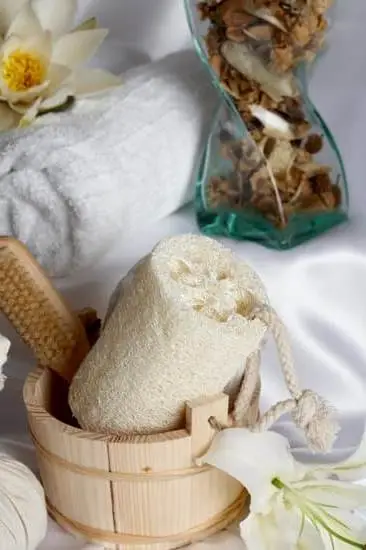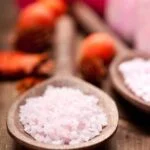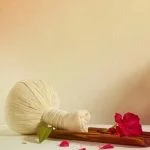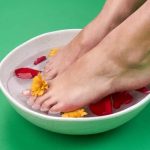Are you struggling to get a good night’s sleep? If so, you’re not alone. Many people have trouble falling asleep or staying asleep, leading to fatigue and other health issues.
Fortunately, there are natural remedies, such as aromatherapy, that can help promote relaxation and improve the quality of your sleep. In this article, we will delve into the world of aromatherapy and its benefits for sleep, as well as provide a step-by-step guide on how to create your own DIY aromatherapy sleep mask.
Aromatherapy is the use of aromatic plant extracts and essential oils to improve one’s physical and psychological well-being. This ancient practice has been used for centuries to promote relaxation, relieve stress, and enhance concentration.
When it comes to sleep, aromatherapy can be especially beneficial in calming the mind and body before bedtime, helping you unwind and prepare for a restful night’s sleep. By incorporating essential oils into your nightly routine, you can create a peaceful environment conducive to sleeping soundly through the night.
The science behind aromatherapy and sleep is based on the ability of certain essential oils to stimulate the release of neurotransmitters in the brain that induce relaxation and regulate sleep cycles. Research has shown that inhaling certain essential oil compounds can have a positive impact on sleep quality by promoting feelings of calmness and reducing anxiety.
By creating a DIY aromatherapy sleep mask infused with these beneficial oils, you can harness the power of aromatherapy to improve your overall sleep experience.
The Science Behind Aromatherapy and Sleep
Aromatherapy has been used for centuries as a holistic healing treatment, and its benefits for sleep are well-documented. Aromatherapy involves the use of essential oils extracted from plants to promote overall well-being and treat various health concerns, including insomnia and other sleep-related issues. These essential oils can be inhaled directly or applied to the skin through massage or in products such as a sleep mask.
The science behind aromatherapy and sleep lies in how certain scents can affect the brain’s emotional and physiological responses. When inhaled, the molecules of essential oils stimulate the olfactory system, which is linked to the limbic system of the brain that controls emotions, memories, and behavior. This interaction with the limbic system can promote relaxation, reduce stress and anxiety, and ultimately help induce a state of calm conducive to falling asleep.
Impact on Stress Hormones
Studies have shown that certain essential oils used in aromatherapy can impact stress hormones such as cortisol. For example, lavender oil has been found to lower levels of cortisol, thus promoting relaxation and improving sleep quality.
Regulation of Sleep-Wake Cycle
The inhalation of specific essential oils has also been found to regulate the body’s internal clock, helping to synchronize the natural circadian rhythm that governs the sleep-wake cycle. By incorporating these essential oils into a diy aromatherapy sleep mask, individuals can create a powerful tool for enhancing their nightly rest.
Selecting the Right Essential Oils for Aromatherapy Sleep Mask
When it comes to selecting the right essential oils for your DIY aromatherapy sleep mask, it’s important to consider the specific benefits and effects of each oil on sleep. Here are some essential oils that are known for their calming and sleep-inducing properties:
- Lavender: Lavender essential oil is well-known for its ability to promote relaxation and reduce anxiety, making it an ideal choice for a sleep mask.
- Chamomile: Chamomile has soothing and calming properties that can help to promote better sleep and reduce insomnia.
- Ylang Ylang: This floral essential oil is known for its sedative effects, helping to lower heart rate and calm the nervous system.
In addition to these essential oils, other options such as bergamot, cedarwood, and sandalwood can also be beneficial in promoting relaxation and improving sleep quality.
It’s important to note that while these essential oils have many benefits, they should be used with caution. Some individuals may have allergies or sensitivities to certain oils, so it’s important to do a patch test before using any new essential oil on your DIY aromatherapy sleep mask. Additionally, pregnant women or individuals with certain medical conditions should consult with a healthcare professional before using essential oils for sleep therapy.
Ultimately, the key is to select essential oils that have calming and relaxing properties to help you achieve a restful night’s sleep when creating your own DIY aromatherapy sleep mask.
Materials and Tools Needed for Diy Aromatherapy Sleep Mask
To create your own DIY aromatherapy sleep mask, you will need a few key materials and tools. First, you will need a plain sleep mask that comfortably covers your eyes, blocking out all light. You can find these at most drugstores or online retailers. Additionally, you will need a selection of essential oils specifically chosen for their calming and sleep-inducing properties.
In order to infuse your sleep mask with the selected essential oil blend, you will also need a small spray bottle, preferably one with a fine mist setting. This will allow you to evenly distribute the essential oil mixture onto the fabric of the sleep mask without oversaturating it. Lastly, you may want to have some distilled water on hand to help dilute the essential oils if necessary.
As for the essential oils themselves, it is important to select ones that are known for their relaxing and sleep-promoting effects. Lavender, chamomile, bergamot, and cedarwood are popular choices for creating a soothing aroma that can help calm the mind and induce drowsiness. It is important to choose high-quality essential oils to ensure potency and purity, as synthetic or diluted oils may not produce the desired therapeutic effects.
With these materials and tools in hand, you will be well-equipped to create your own custom DIY aromatherapy sleep mask tailored to your personal preferences and needs. Creating this personalized sleep aid can not only enhance your nightly routine but also provide a sense of accomplishment and creativity as you take control of your relaxation practices.
Step-by-Step Guide on Making Your Own Diy Aromatherapy Sleep Mask
Materials Needed for Diy Aromatherapy Sleep Mask
To make your own diy aromatherapy sleep mask, you will need a few materials and tools. These include a plain sleep mask, essential oils, a small spray bottle with water, a small funnel, and a mixing bowl. Make sure to use a sleep mask that is made of natural fibers like silk or cotton for maximum comfort.
Selecting the Right Essential Oils
When selecting essential oils for your diy aromatherapy sleep mask, it is important to choose scents that are known for their calming and relaxing properties. Lavender, chamomile, and bergamot are popular choices for promoting better sleep. Consider blending different oils together to create a custom scent that suits your preferences.
Step-by-Step Guide
- Start by laying out your plain sleep mask on a flat surface.
- In the mixing bowl, mix a few drops of your selected essential oil with water using the small funnel.
- Use the spray bottle to lightly mist the scented water onto the sleep mask. Make sure to distribute it evenly across the entire surface.
- Allow the mask to dry completely before using it.
Creating your own diy aromatherapy sleep mask is an easy and cost-effective way to benefit from the soothing properties of essential oils while also enjoying a restful night’s sleep.
Tips for Using Your Diy Aromatherapy Sleep Mask
Using a DIY aromatherapy sleep mask can be a wonderful way to improve the quality of your sleep and enhance relaxation. Once you have created your own personalized sleep mask, it’s important to use it effectively in order to gain the maximum benefit from the aromatherapy. Here are some tips for using your DIY aromatherapy sleep mask:
First and foremost, it is crucial to ensure that your essential oils are properly diluted before applying them to the sleep mask. Undiluted essential oils can cause skin irritation, so always dilute them with a carrier oil such as coconut oil or almond oil. This will also help the scent to last longer on the mask.
Next, make sure to store your DIY aromatherapy sleep mask in a cool, dark place when not in use. This will help preserve the potency and effectiveness of the essential oils. Consider keeping it in a sealed plastic bag or container to prevent oxidation and maintain the pleasant aroma.
When you’re ready to use your DIY aromatherapy sleep mask, find a comfortable position in bed and gently place it over your eyes. Take slow, deep breaths and consciously focus on inhaling the soothing scent of the essential oils.
Close your eyes and allow yourself to relax fully, letting go of any tension or stress from the day as you drift off into a peaceful slumber. By incorporating these simple tips into your bedtime routine, you can make the most of your DIY aromatherapy sleep mask for a truly restful night’s sleep.
Other Aromatherapy Techniques for Better Sleep
Aromatherapy is not limited to just using sleep masks. There are other techniques that can be used to incorporate aromatherapy into your bedtime routine for better sleep. One popular method is using an essential oil diffuser, which disperses the aroma of the oils throughout the room, creating a relaxing atmosphere. This can be especially beneficial for individuals who share a bed or bedroom with someone who may not want to wear a sleep mask.
Another technique is using linen sprays or pillow mists infused with calming essential oils. Spritzing your bedding with a soothing scent like lavender or chamomile can help create a tranquil environment that promotes relaxation and supports a better night’s sleep.
Additionally, taking a relaxing bath before bed with the addition of essential oils can also aid in promoting better sleep. Adding a few drops of lavender, ylang-ylang, or jasmine oil to bathwater can help calm the mind and body, preparing you for a restful night’s sleep.
These alternative aromatherapy techniques offer flexibility for those who may not find wearing a sleep mask comfortable or prefer other methods of incorporating essential oils into their nightly routine.
| Aromatherapy Technique | Benefits |
|---|---|
| Essential Oil Diffuser | Creates a relaxing atmosphere; ideal for shared spaces |
| Linen Sprays/Pillow Mists | Promotes relaxation and supports better sleep when spritzed on bedding |
| Aromatherapy Baths | Calms the mind and body before bedtime; promotes relaxation |
Conclusion
In conclusion, incorporating aromatherapy into your sleep routine can have a powerful impact on the quality of your rest. By using essential oils in a DIY aromatherapy sleep mask, you can create a relaxing and calming environment that promotes better sleep. The combination of scent and gentle pressure from the mask provides a holistic approach to improving your sleep without the need for medication or other interventions.
The science behind aromatherapy and sleep is well-documented, with various studies showing how certain scents can help lower heart rate, reduce stress levels, and improve overall sleep quality. Selecting the right essential oils for your DIY aromatherapy sleep mask is crucial, as each oil has its own unique properties and benefits. Lavender, chamomile, and cedarwood are just a few examples of essential oils known for their ability to promote relaxation and enhance sleep.
By following a step-by-step guide to make your own DIY aromatherapy sleep mask, you can customize the experience to fit your personal preferences and needs. Whether you prefer a lavender-infused mask or one scented with frankincense, the choice is yours. Overall, embracing aromatherapy as part of your bedtime routine can provide long-lasting benefits for improved sleep and overall well-being.
Frequently Asked Questions
How Do You Make an Aromatherapy Eye Pillow?
To make an aromatherapy eye pillow, start by cutting fabric into a rectangle and sewing three sides together. Then, fill it with flaxseeds and dried herbs, adding a few drops of essential oil for scent. Finally, sew the last side shut to complete the eye pillow.
How Do You Make a Lavender Sleep Mask?
Making a lavender sleep mask is easy and enjoyable. Begin by cutting two pieces of fabric in the shape of a mask and sewing them together. Then, fill the mask with dried lavender before sewing it shut. This simple project can result in a soothing sleep aid.
What Essential Oils Are Good for Eye Masks?
Several essential oils are beneficial for eye masks. Lavender oil is known for its calming properties, while chamomile oil can help reduce puffiness and soothe tired eyes. Peppermint oil is also popular for its cooling effect, making it ideal for relieving tension around the eyes.

Are you looking for a natural way to improve your health and wellbeing?
If so, aromatherapy may be the answer for you.





